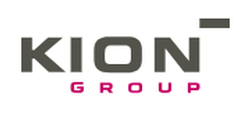
Supply Chain Solutions generate strong boost in orders for the KION Group in the second quarter 2020
- Group publishes preliminary financial results for Q2 2020
- Value of order intake for the KION Group rises by just over 11 percent in Q2 2020 to around €2.3 billion
- Revenue declined by over 16 percent as a result of the coronavirus pandemic to almost €1.9 billion
- Adjusted EBIT falls sharply to just under €61 million (Q2 2019: €225 million)
- Adjusted EBIT margin well into positive territory at over 3 percent
- The slightly positive free cash flow of approximately 2 million (Q2 2019: -€114 million)
As the difficult market conditions persisted around the world in the wake of the coronavirus pandemic, the KION Group’s diversified strategic positioning paid off in the second quarter of 2020. The Supply Chain Solutions (SCS) segment, which specializes in automation solutions, saw accelerated growth as its continuing strong market position enabled it to benefit significantly from the currently booming market. The exceptionally good performance of the SCS segment was driven in particular by demand from e-commerce customers. Conversely, the pandemic-induced reluctance to invest that is currently being experienced in many industries hit new business in the Industrial Trucks & Services (IT&S) segment particularly hard. The Group was, however, able to substantially contain the negative impact of this thanks to the stabilizing effect of the high proportion of revenue accounted for by the Service business.
“Our success in the second quarter is affirmation of our KION 2027 strategy, with diversification through two strong operating segments and a focus on automation, digitalization, energy, innovation, and performance,” stressed Gordon Riske, Chief Executive Officer of KION GROUP AG, as the preliminary financial results for the second quarter of 2020 were published on Monday in Frankfurt. “As a Group, we have succeeded in compensating, at least in part, for the very difficult market conditions in the industrial trucks business through growth in our Supply Chain Solutions systems business. We have generated an operating profit, in terms of adjusted EBIT, in both segments. As a full-service provider with a strong presence on every continent, we are able to exploit opportunities even during a global crisis. The coronavirus crisis is demonstrating that the KION Group has a highly resilient business model.”
The value of order intake for the KION Group rose by over 11 percent to around €2.3 billion in the second quarter of 2020 (Q2 2019: €2.079 billion). While order intake in the Industrial Trucks & Services segment declined by around
20 percent, the Supply Chain Solutions segment saw a doubling of order intake, driven to a large extent by exceptionally strong demand from e-commerce companies. The market for automated supply chain solutions remained intact in nearly all important customer industries and is continuing to grow.
Consolidated revenue fell by more than 16 percent to just under €1.9 billion (Q2 2019: €2.281 billion), primarily as a result of extensive lockdown measures in a number of the Company’s geographical markets in April and May. Adjusted EBIT for the KION Group was significantly down on the figure for the prior-year period at just under €61 million
(Q2 2019: €225 million); the adjusted EBIT margin was over 3 percent (Q2 2019: 9.9 percent). The decline in revenue and earnings was driven primarily by the growing impact of the global spread of the coronavirus pandemic. In the Industrial Trucks & Services segment, this caused huge damage to business operations, in terms of both procurement and sales, especially in Europe. Thanks to strict spending discipline, a positive free cash flow of approximately
€2 million was achieved in the second quarter of 2020 (Q2 2019: -€114 million).
Segment performance in detail
In the Industrial Trucks & Services segment (industrial trucks, warehouse technology, and related services), the KION Group’s brand companies took orders for just over 43,000 new trucks in the period April to June. This represented around 23 percent fewer orders than in the prior-year period. In China, however, there are now clear signs of recovery in the truck market as the country emerges from the coronavirus pandemic. Toward the end of the quarter, there were also emerging signs of recovery in European countries.
The value of order intake in the Industrial Trucks & Services segment, which includes the service business, fell by around 20 percent to almost €1.3 billion (Q2 2019: €1.573 billion). Segment revenue fell by around 23 percent to almost €1.3 billion (Q2 2019: €1.638 billion), primarily as a result of the decline in new truck sales. Despite the significant decline in revenue, and the associated underutilization of capacity, adjusted EBIT remained positive at just under
€16 million (Q2 2019: €178 million). The adjusted EBIT margin was just over 1 percent (Q2 2019: 10.8 percent).
The value of order intake in the Supply Chain Solutions segment was a record close to €1.1 billion in the second quarter of 2020, an increase of more than 100 percent on the corresponding prior-year period (Q2 2019: €506 million). This was due in large part to big-ticket orders from e-commerce customers, including companies in North America and Europe. Segment revenue was virtually unchanged in the prior-year period at approximately €635 million (Q2 2019: €642 million). Adjusted EBIT for the segment was in excess of €50 million, which represented a fall of approximately
16 percent (Q2 2019: €64 million) as a result of inefficiencies caused by the difficult circumstances for delivering projects under restrictions imposed to contain the pandemic. The adjusted EBIT margin was around an encouragingly solid 8 percent (Q2 2019: 9.9 percent).
All figures for the second quarter of 2020 in this release are based on preliminary financial results. Therefore, financial results to be published in the interim report as of 30 June 2020 may deviate from the figures in this release. This report is expected to be published on 30 July 2020.









